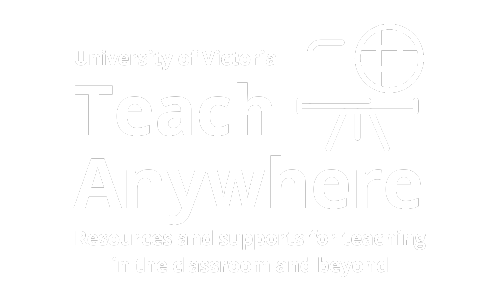Society requires that people with diverse backgrounds come together and work toward resolving complex environmental, ethical, scientific and social problems. In addition to substantive content knowledge in students’ specific fields of study, all students at the University of Victoria are encouraged to take advantage of opportunities they will be given to achieve the following learning outcomes.
Intellectual, academic and practical skills in:
- Inquiry, analysis, and problem solving
- Critical, innovative, and creative thinking
- Effective written, visual, and oral communication
- Numerical literacy
- Critical evaluation of qualitative and quantitative information
- Critical management of information, including in digital environments
- Collaboration and the ability to work in teams
Personal and social responsibility capacities:
- Informed civic engagement and understanding – from local to global
- Intercultural knowledge and sensitivity
- Ethical and professional reasoning and action
- Life-long learning
These outcomes are achieved through:
- Academic and co-curricular programs of the highest quality
- Integration of research and teaching across the curriculum
- Practice and support of relevant skills through progressively more challenging problems, assignments, projects, and standards for performance
- Opportunities for research, experiential, and work-integrated learning
- Active engagement with diverse communities, societal issues and meaningful intellectual challenges
Faculties, units and programs will interpret these outcomes in ways that are discipline-specific, using the university-wide learning outcomes as guide posts for developing program-specific and course-specific learning outcomes. Students in different programs will therefore achieve these outcomes in different ways according to the appropriate standards of their respective fields of study.
